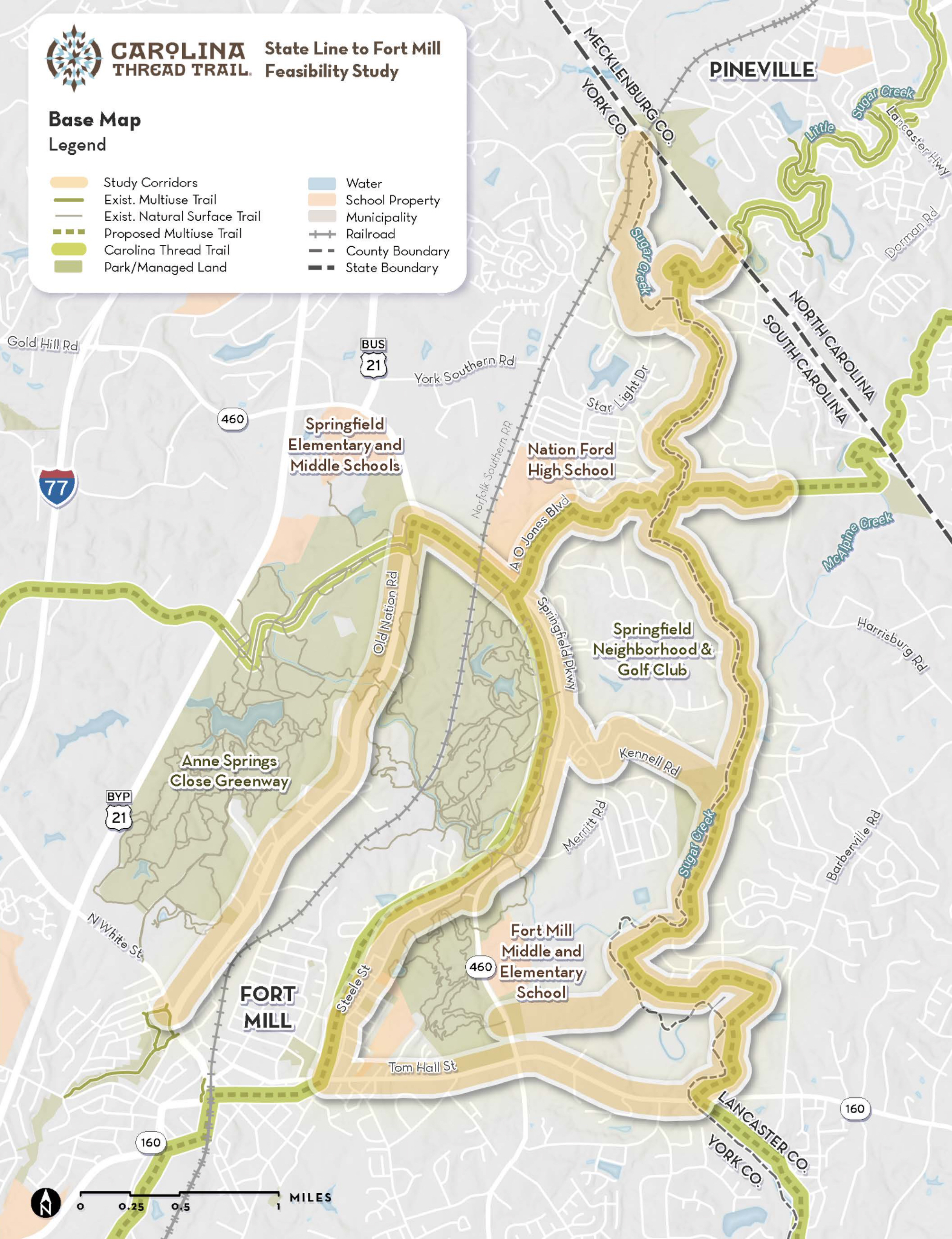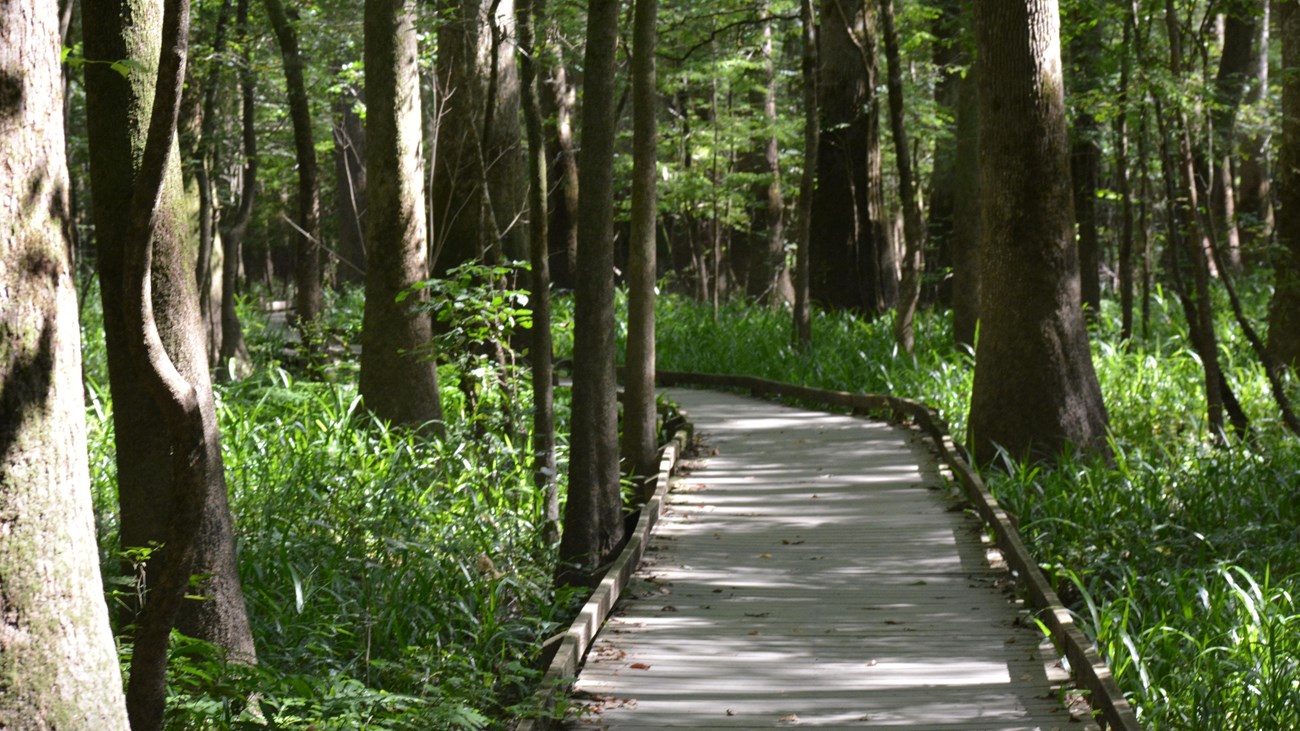The Carolina Thread Trail, in collaboration with Lancaster County, York County, and the Town of Fort Mill, has launched a feasibility study to explore potential connections between existing and proposed trails from Mecklenburg County at the North Carolina/South Carolina state line to Anne Springs Close Greenway and Route 160 in Fort Mill, SC. This study aims to enhance the region’s trail network by improving connectivity, accessibility, and safety.
Project Goals and Scope
The primary goal of the Carolina Thread Trail Feasibility Study is to identify and evaluate potential routes for extending the trail network, particularly focusing on areas along Sugar Creek and various roadway corridors. The study will consider multiple factors, including the environmental impact, cost estimates, and implementation plans for the proposed trail segments. By doing so, it aims to create a comprehensive plan that addresses the needs and concerns of the community while promoting sustainable development.
Community Engagement and Feedback
Public input is a crucial component of this feasibility study. The feedback gathered from residents will help shape the proposed trail segments and ensure that the final plan reflects the community’s preferences and priorities. The survey, available at https://publicinput.com/cttfeasibilitystudy, invites participants to share their thoughts on potential routing alternatives and other relevant issues.
Types of Bicycle and Pedestrian Facilities
The study will examine various types of bicycle and pedestrian facilities to determine the most suitable options for the proposed trail segments. These facilities include:
- Greenways: Separate areas from motorized traffic for bicyclists, pedestrians, wheelchair users, skaters, joggers, etc., often located along streams, utility corridors, and parks.
- Sidepaths: Bidirectional shared use paths adjacent and parallel to roadways, offering low-stress experiences for bicyclists and pedestrians along routes with high-speed or high-volume traffic.
- Sidewalks: Dedicated bi-directional paths for pedestrians, physically separated from roadways by curbs or unpaved buffer spaces.
- Separated Bicycle Lanes: Exclusive lanes for bicyclists, located within or adjacent to roadways, and physically separated from motor vehicle traffic by buffered spaces with vertical separation elements. These can accommodate one-way or bi-directional bicycle travel.
Importance of the Feasibility Study
This feasibility study is a significant step towards expanding and enhancing the Carolina Thread Trail network. By identifying and evaluating potential routing alternatives, the study will provide a detailed roadmap for future trail development. It will address key aspects such as connectivity, safety, environmental protection, and community engagement, ensuring that the trail network meets the diverse needs of the region’s residents.
Residents of Lancaster County, York County, and Fort Mill are encouraged to participate in the survey and contribute their ideas and feedback. Their input will play a vital role in shaping the future of the Carolina Thread Trail, fostering a more connected and accessible community for all.
For more information and to take the survey, visit https://publicinput.com/cttfeasibilitystudy.










